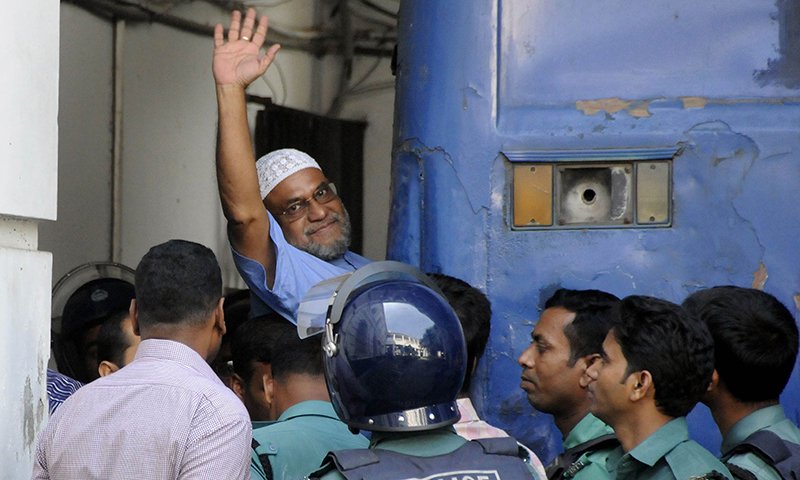
The war crimes tribunal set up by Prime Minister Sheikh Hasina in 2010 has sparked violence and drawn criticism from opposition politicians, who say it is targeting her political foes. The government denies the accusations.
DHAKA (Reuters) Bangladesh hanged a top Islamist party figure on Saturday for atrocities committed during the 1971 war of independence from Pakistan, the law minister said.
Mir Quasem Ali, 63, a key financier of the Jamaat-e-Islami party, was executed at Kashimpur Central Jail on the outskirts of the capital, for murder, confinement, torture and incitement to religious hatred during the war.
Ali was hanged at 10.35 pm local time (4.35 pm GMT), Law Minister Anisul Haq told Reuters.
The execution took place amid a spate of militant attacks in the Muslim-majority nation, the most serious on July 1, when gunmen stormed a cafe in Dhaka’s diplomatic quarter and killed 20 hostages, most of them foreigners.
The war crimes tribunal set up by Prime Minister Sheikh Hasina in 2010 has sparked violence and drawn criticism from opposition politicians, who say it is targeting her political foes. The government denies the accusations.
Human rights groups say the tribunal’s procedures fall short of international standards, but the government rejects that assertion, and the trials are supported by many Bangladeshis.
Thousands of extra police and border guards were deployed in Dhaka and other major cities. Previous convictions and executions have triggered violence that has killed about 200 people, most of them Islamist party activists, and police.
Since December 2013, five Jamaat leaders, including former top leader Motiur Rahman Nizami, and a leader of the main opposition party, have been executed for war crimes.
The party denies its leaders committed any atrocities.
(Reporting by Ruma Paul; Editing by Andrew Bolton)

